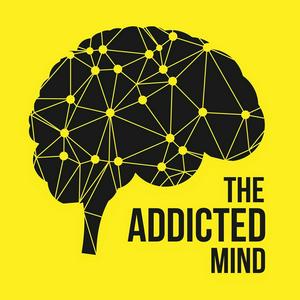In this episode of The Addicted Mind, we dive deep into the world of experiential therapy with Steve Buckby, a seasoned therapist with over 50 years of experience. Steve shares his profound insights into the Virginia Satir Model and how its principles of change, the "Mandala," and the "Iceberg" can be powerful tools for those struggling with addiction.
We explore the idea of addiction as a "lover" that must be grieved, the necessity of walking through chaos to find a new status quo, and why the relationship between therapist and client is a collaborative journey of human-to-human connection.
Key Takeaways
The Process of Change: Change isn’t a straight line; it requires moving from a familiar (even if painful) status quo, through a "foreign element" that sparks chaos, and finally into a new, healthier balance.
Addiction as a "Lover": Recovery often involves a grieving process similar to the stages of grief described by Elisabeth Kübler-Ross. Letting go of a substance is often like losing a significant, albeit toxic, relationship.
The Satir Mandala: Understanding the physical, intellectual, emotional, sensual, interactional, nutritional, contextual, and spiritual dimensions of ourselves to find true balance.
Vulnerability & Connection: Addiction thrives in isolation. Healing begins when we take the risk to be "real" and vulnerable within a supportive community or therapeutic relationship.
Education as Empowerment: Understanding the physiology of addiction helps separate the person from the "ism," reducing shame and fostering self-forgiveness.
Understanding the Satir Model
Steve explains that human beings naturally seek a Status Quo. In addiction, that status quo is the cycle of use. To break it, a "Foreign Element" (a crisis, a choice, or an intervention) must disrupt the system.
The Stages of Transformation
Old Status QuoThe familiar, predictable way of living (even if dysfunctional). Foreign ElementAn event or realization that makes the old status quo no longer viable.ChaosThe "limbo" period where old patterns don't work and new ones aren't yet formed. Integration Learning new strategies and internalizing resources. New Status Quo A state of higher functioning, self-compassion, and awareness.The "Iceberg Theory"
Steve also touches on the Iceberg Theory, which suggests that behavior (the tip of the iceberg) is driven by much deeper levels of feelings, perceptions, expectations, yearnings, and the "Self."
"The story is not the problem; the meaning of the story is really important." — Steve Buckby
By shifting the meaning we give to our past trauma and choices, we can move from shame to positive-directional change.
About Our Guest: Steve Buckby
Steve Buckby is a certified social worker and licensed professional counselor based in Escanaba, Michigan. Practicing since the early 1970s, Steve has dedicated his career to outpatient and inpatient care, as well as teaching the experiential methods of Virginia Satir to the next generation of healers.
Connect with Steve:
Email:
[email protected]Resources Mentioned
Virginia Satir Global Network
The Kübler-Ross Stages of Grief
Mindfulness Practices
Enjoyed the show? Please consider leaving us a review on iTunes or supporting us on Patreon. Your support helps us bring these vital conversations to those who need them most.
Episode Credits
If you live in California and are looking for counseling or therapy please check out Novus Mindful Life Counseling and Recovery Center
NovusMindfulLife.com
We want to hear from you. Leave us a message or ask us a question: https://www.speakpipe.com/addictedmind
Disclaimer
See Privacy Policy at https://art19.com/privacy and California Privacy Notice at https://art19.com/privacy#do-not-sell-my-info.


